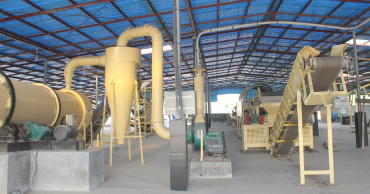recycling
What is ‘Zero Waste’ and why is it important?
Zero waste is not just a trend; it is a movement towards sustainability and environmental responsibility. March 30 marks International Zero Waste Day, a day dedicated to raising awareness about waste management and sustainable living practices. This concept extends beyond individual actions to encompass a holistic approach involving communities, businesses, and policymakers.
What is Zero Waste and Zero Waste Movement?
Zero waste is a philosophy aiming to eliminate trash. It is a lifestyle that focuses on minimising waste generation and resource depletion. It advocates redesigning resource life cycles so that all products are reused or recycled, leaving no waste to be sent to landfills or incinerators.
In 2008, the term "Zero Waste" primarily referred to industrial and municipal waste management methods. However, Bea Johnson, a French American adopted this concept for her household. By 2009, she began documenting her journey on the Zero Waste Home blog, gaining recognition when featured in The New York Times in 2010.
Read more: Eight ways to overcome waste pollution crisis
The zero waste movement promotes sustainable practices, such as reducing consumption, reusing items, recycling materials, composting organic waste, and refusing single-use products. By embracing these principles, individuals, communities, and businesses can contribute to a more sustainable and environmentally friendly future, where resources are conserved, pollution is reduced, and ecosystems are protected.
1 year ago
BGMEA, Oerlikon discuss collaboration on capacity building in manmade fibre, recycling
The Bangladesh Garment Manufacturers and Exporters Association (BGMEA) and Oerlikon have discussed collaboration in supporting garment factories to build up their capacity in manufacturing high-end products made of manmade fibre.
Oerlikon is a leading high-tech industrial group specialising in textile and recycling machinery and technologies, and a supplier of manmade fibre filament in the world.
Read more: BGMEA wants faster, simplified services from custom houses
BGMEA and Oerlikon also talked about the market potential of using polyester, nylon and polypropylene yarns in producing value-added apparel in Bangladesh.
The meeting focused on collaboration to enhance the capacity of recycling textile waste in Bangladesh to make the country a global hub of recycling too.
Markus Reichwein, technology head of product management at Oerlikon Barmag, and Sudipto Mandol, manager (sales and marketing) at Oerlikon Textile India, called on BGMEA President Faruque Hassan in Dhaka Saturday.R
Read more: BGMEA, Recover discuss collaboration to turn Bangladesh into global recycling hub
Faruque said: "Bangladesh has aimed to pursue a higher growth vision through diversifying textile material from cotton to non-cotton as the demand for those goods were growing all over the world due to their durability, sustainability and functionality."
"Also, Bangladeshi garments factories are increasingly investing in scaling up their capabilities in manufacturing high-end apparel and capturing and reusing textile waste."
BGMEA directors Arshad Jamal, Asif Ashraf, Tanvir Ahmed, Barrister Vidiya Amrit Khan, Mijanur Rahman, and Neela Hosna Ara were also present at the meeting.
3 years ago
How AI is helping Japan convenience stores, supermarkets profit from reduced waste
It is 3pm. In-store computers at a convenience store chain in Tokyo's Shinjuku Ward decide which food items should be discounted and by how much. Assorted sandwiches, one, 20 yen ($0.13) off, and crispy ham and lettuce sandwiches, three, 30 yen off, a display says.
Then a manager prints out price tags and goes about attaching them to items. Eight assorted sandwiches line the shelf, but only one, approaching its expiration date, is discounted.
More Japanese convenience stores and supermarkets are now using artificial intelligence (AI) to analyse data such as past sales figures to decide what discounts to apply to perishable products to boost sales and cut food waste, reports Kyodo News Plus.
Lawson Inc, one of Japan's largest convenience store chains, introduced a system in 2015 where AI at its head office advises store managers and experienced staff on product management at all stores.
To calculate how far to lower prices, the software considers a store's sales, delivery times and the local weather conditions to propose a price that gives the product the best chance at being sold.
3 years ago
Reimagination, recycling and rejoice: Brihatta opens 'Mukti' at its unique, new home
Transcending the roadblocks in creativity through marching ahead with experimental and refreshing ideas, Brihatta Art Foundation started its journey to its temporary address through the inaugural exhibition 'Mukti' on the roof of Mukti Tannery-1, in the Hazaribagh Tannery area in the capital on Saturday.
Known for its leather manufacturing and being one of the most polluted areas in Dhaka city, the abandoned tannery space was chosen by Brihatta Art Foundation which has renovated the place with the state-of-the-art design and a massive recycling process for four months, under the curation and supervision of renowned artist Bishwajit Goswami, founder of the Brihatta Art Foundation and Assistant Professor at the Faculty of Fine Art, Dhaka University.
Celebrating 50 years of Bangladesh’s independence, the inaugural exhibition ‘Mukti’ started welcoming the visitors to this unique, new art space from October 30, consisting of five artists from Bishwajit Goswami’s sculptural based curatorial project “Khujiya Dekho Tai” (Find, Create, Express) and a special artistic venture titled “Aay Tobe Sohochori” (Let’s Play Together) by the children of Hazaribagh Local School, Nalonda High School and many other schools under the supervision of artist Tania Sultana and Yunnan Arts University, China lecturer artist Mon Mong Sho.
Prior to welcoming the general art admirers, Brihatta hosted a two-day launching event on October 28, Thursday, and October 29, Friday. The event was attended by the locals, other tannery owners, street children, workers, children and their guardians, and neighbors of 'Brihatta's new space and artists participating in the exhibition.
Also read: Curtain lifts on Brihatta Home Art Project 2020 at Bengal Shilpalay
On Thursday, special guests including BGMEA Board of Directors member Rubana Haque, architect Saif Ul Haque, thespian Tanveen Sweety, and Dhaka University Dean at the Faculty of Fine Art Professor Nisar Hossain visited the exhibition on Thursday.
4 years ago
BUILD wants to assist govt in promoting recycling, sustainable business practices
The Ministry of Environment, Forests and Climate Change (MoEFCC) will form two new sub-committees on recycling and green growth under the existing Sustainability and Green Growth Working Committee (SGGWC).
4 years ago
Jashore waste treatment plant makes a big difference
The waste treatment plant at Jhumjhumpur in Sadar municipality area has become a role model in recycling wastes, turning them into biogas and fertiliser.
6 years ago



.jpg)
.jpg)
.jpg)




